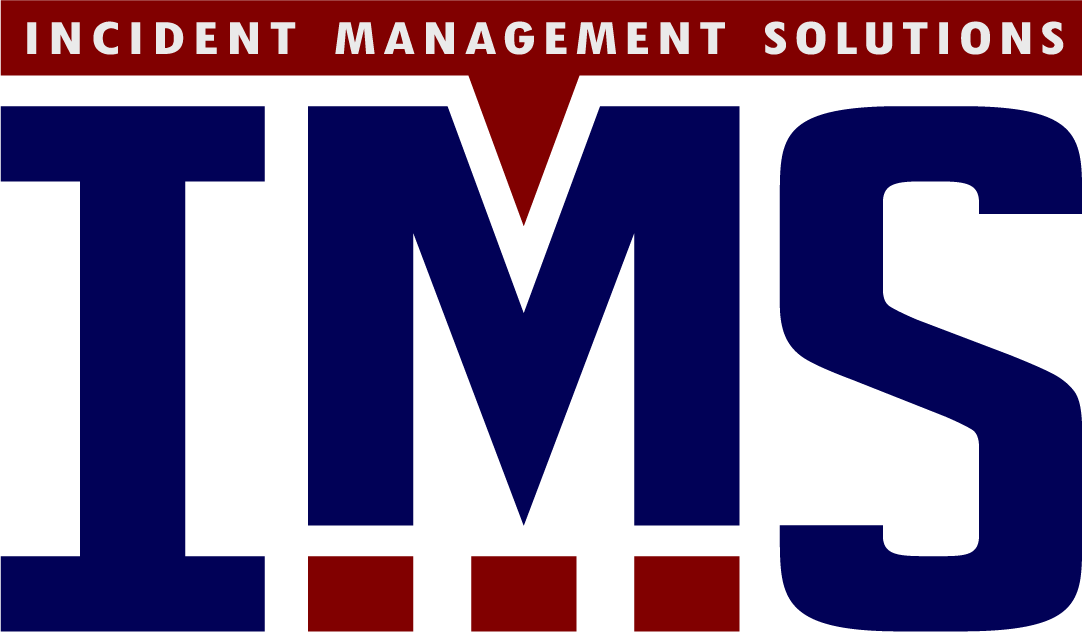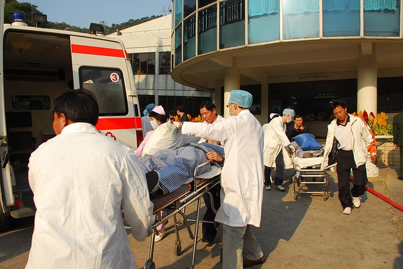Healthcare Organizations
More Than One Hundred Twenty Five Years of Extensive Expertise in Crisis Leadership and Change Management
Our Expertise
Incident Management Solutions (IMS) expertise in healthcare emergency management centers on providing a structured, standardized framework for effective crisis response, primarily through the adoption of the Hospital Incident Command System (HICS), which is consistent with the National Incident Management System (NIMS). This expertise includes the use of centralized software platforms and established protocols to achieve real-time situational awareness across all departments, manage the coordination and deployment of critical resources (such as staff, supplies, and space), and facilitate integrated, auditable communication with internal teams and external agencies. By providing a common operating picture and predefined functional roles (Command, Operations, Planning, Logistics, Finance/Administration), IMS ensures that healthcare organizations can scale their response to any emergency, from an internal utility failure to a mass casualty event, thereby protecting patients, staff, and organizational continuity.
Planning
Emergency management planning in healthcare facilities is a robust, continuous process driven by an all-hazards approach to protect patients or residents, staff, and essential services from any disruptive event. This planning cycle encompasses four core phases: Mitigation (reducing risks identified in the Hazard Vulnerability Analysis), Preparedness (developing and training staff on the Emergency Operations Plan and the Hospital Incident Command System), Response (activating protocols for triage, medical surge, security, and utility management during a crisis), and Recovery (restoring full clinical and financial operations). The ultimate goal is to ensure organizational resilience and the ability to function as a crucial community resource, often relying on internal resources and external partnerships to maintain continuous care during and after a disaster.
Training
Emergency management training in healthcare facilities is a crucial, mandated, and ongoing process designed to validate and reinforce the facility's Emergency Operations Plan (EOP). The training ensures all personnel, from clinical staff to security and leadership, are competent in their crisis-specific roles, with a focus on core areas like communications, utilities management, resource allocation, active assailant/workplace violence, and clinical surge capacity. This training is progressive, starting with annual education and tabletop exercises (discussion-based scenarios) and escalating to full-scale functional exercises that test the full activation of the Hospital Incident Command System (HICS) in realistic simulations, such as mass casualty incidents or evacuations, to identify gaps and drive continuous program improvement. This training is mandated by regulatory organizations and needed for clinical and non-Clinical staff throughout the facility.
Emergency management leadership in healthcare facilities is the vital function that provides strategic direction and oversight for the continuous cycle of planning, training, response, and recovery. This leadership is typically delegated by the CEO to an Emergency Management Director and guided by a multidisciplinary Emergency Management Committee that ensures the Emergency Operations Plan (EOP) aligns with the facility's Hazard Vulnerability Analysis (HVA) and community-wide plans. During an actual event, leadership transitions to the Incident Commander operating within the Hospital Incident Command System (HICS) or Nursing Home Incident Command System (NHICS), who is responsible for setting incident objectives, allocating resources, prioritizing the safety of patients and staff, and ultimately declaring the return to normal operations to maintain the organization's mission of continuous patient care.
Leadership
Drills and Exercises
Emergency Management drills and exercises are essential, mandatory activities for healthcare facilities, serving to test, validate, and improve the effectiveness of the Emergency Operations Plan (EOP) and staff proficiency. These activities range in complexity from Tabletop Exercises (TTX), which are discussion-based sessions to review plans and procedures, to Drills that test a single, specific function (like decontamination or fire evacuation), and ultimately to Full-Scale Exercises (FSE) that may include multi-agency, real-time simulations designed to test the entire system's coordination, communication, and command structure. By regularly engaging in these planned and often unannounced scenarios, facilities identify gaps in resources and training, clarify roles and responsibilities under the Hospital or Nursing Home Incident Command System (HICS/NHICS), and ultimately ensure continuous patient care and community safety when a real crisis occurs.
Clients Served
Incident Management Solutions has been serving healthcare systems since 1996.
-
Albert Lea Medical Center, Albert Lea, MN
Baylor All Saints Medical Center at Fort Worth
Baylor Medical Center at Irving
Baylor Medical Center at North Garland
Baylor Medical Center at Waxahachie
Baylor Regional Medical Center at Plano
Baylor University Medical Center at Dallas
Baylor Scott & White Medical Center - Lake Pointe
Beth Israel-Deaconess Medical Center
Bon Secours Hospital, Baltimore (now Grace Medical Center)
Brookhaven Memorial Hospital Medical Center (now NYU Langone Hospital—Suffolk)
Carolinas Medical Center - NorthEast
Carolinas Medical Center - University (now Atrium Health University City)
Chelsea Community Health Center
Columbus Regional Hospital (now Columbus Regional Health)
Doctors Hospital at White Rock Lake (now White Rock Medical Center)
Douglas County (MN) Hospital (now Alomere Health Campus)
Eisenhower Army Medical Center
Howard County General Hospital
Indiana University Health Bedford
Indiana University Health Goshen
Johns Hopkins Bayview Medical Center
Maryvale Hospital (now Valleywise Behavioral Health Center Maryvale)
Massachusetts General Hospital
Memorial Hospital of South Bend
Montefiore Hospital, Moses Campus
Montefiore Einstein Campus
Montefiore Einstein, Wakefield Campus
Montgomery County Hospital Collaborative
New York City Health + Hospitals
HHS Region II Regional Emerging Special Pathogen Treatment Center (RESPTC) @ Bellevue
NYC Health + Hospitals/South Brooklyn Health, Ruth Bader Ginsburg Hospital
New York Community Hospital of Brooklyn (now Maimonides Midwood Community Hospital)
New York-Presbyterian Hospital
North Shore-Long Island Jewish (NS-LIJ) Health System (now Northwell Health)
Forest Hills Hospital (now Long Island Jewish Forest Hills)
Franklin Hospital Medical Center (now Long Island Jewish Valley Stream)
North Shore Hospital (now North Shore University Hospital)
Schneider Children's Hospital and North Shore-LIJ Children's Hospital (now Cohen Children's Medical Center at Long Island Jewish Medical Center)
Southside Hospital (now South Shore University Hospital)
Staten Island University Hospital (North, South, and Concord sites)
North Shore University Hospital
Northwest Hospital, Randallstown, MD
Peconic Health Corporation (now Peconic Bay Medical Center)
Polk Medical Center (now Atrium Health Floyd Polk Medical Center)
Reid Hospital and HealthCare Services
Revere Community Health Center
Southampton Hospital (now Stony Brook Southampton Hospital)
South Nassau Communities Hospital (now Mount Sinai South Nassau)
South Peninsula Hospital (Homer AK)
St. Francis Hospital & Health Centers (now Franciscan Health)
St. Vincent's Medical Center Manhattan
Sumner Regional Medical Center (now Highpoint Health – Sumner with Ascension Saint Thomas)
Tufts-New England Medical Center
Underwood Memorial Hospital (now Inspira Health Center Woodbury)
University of Maryland Upper Chesapeake Health
University Hospital at Stony Brook (now Stony Brook University Hospital)
United States Veteran’s Administration Bronx Healthcare
US Veterans Administration New York Harbor Health System
Winthrop-University Hospital (now NYU Langone Hospital Long Island)
-
Albert Lea Medical Center Home Health and Hospice
Bloomington Hospital Home Health and Hospice
LaPorte Hospital Home Health (now Indiana HomeCare Northwest)
North Shore-Long Island Jewish (NS-LIJ) Health System (now Northwell Health)
Center for Extended Care and Rehabilitation (now Northwell Health Orzac Center for Rehabilitation)
Stern Family Center for Extended Care and Rehabilitation (now Stern Family Center for Rehabilitation)
Peninsula Center for Extended Care & Rehabilitation
St. Mary's Hospital For Children
Visiting Nurse Regional Health Care System
Visiting Nurse Service of New York (now VNS Health)
-
Boyd County (KY) Office of Emergency Management
Lorain County (OH) Office of Emergency Management
Nassau County (NY) Department of Health
New York City Health Department
New York City Office of Emergency Management (NYCEM)
New York State Department of Health (NYSDOH)
Pima County (AZ) Department of Health
-
-
-
Alaska State Hospital and Nursing Home Association
Bronx Emergency Preparedness Coalition (BEPC)
Connecticut Hospital Association
Home Care Association of New York State (HCANYS)
Greater New York Hospital Association
Hospital Association of New York State
Illinois Public Health Association
Intercounty Health Facilities Association
International Association for Healthcare Security and Safety
National Association of State Veterans Homes
New York City Fire Department EMS Superior Officers Association
New York State Association of Health Care Providers (NYHCP)
Ready Rockaway Healthcare Coalition
Richmond County (NY) Medical Society
South Carolina Hospital Association
Virginia Health Care Association | Virginia Center for Assisted Living
Complimentary Consultation
There is no charge for us to discuss your matter with you and recommend a path forward.





